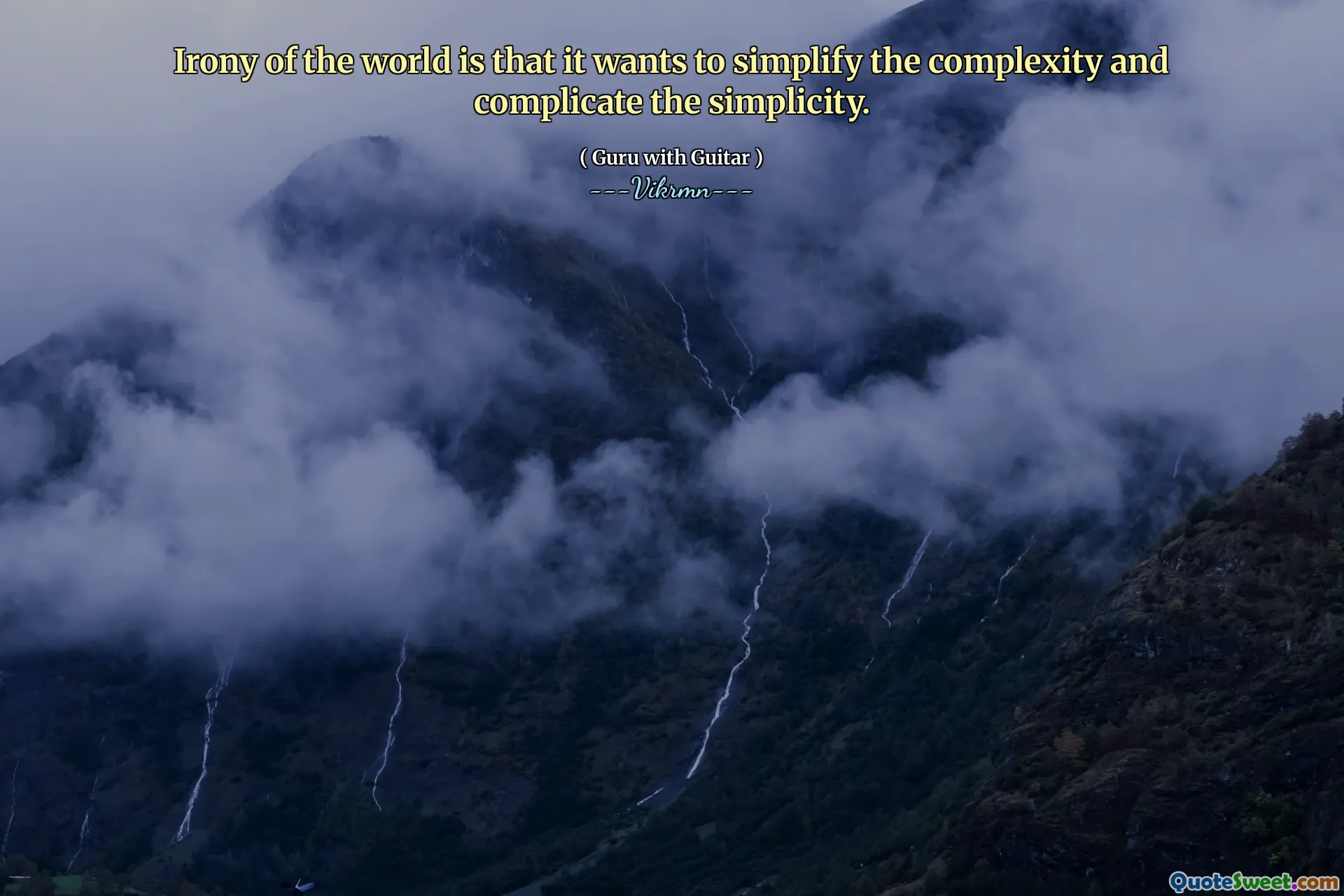
Irony of the world is that it wants to simplify the complexity and complicate the simplicity.
This quote highlights the paradoxical nature of human societies and individual perceptions. Often, we find ourselves caught in a web of contradictions where our desire to make things easier leads us to overcomplicate matters, while simultaneously, efforts to clarify or simplify sometimes introduce a new layer of complexity. It reflects on the tendency of human beings to struggle with understanding genuine simplicity, perhaps because simplicity is often mistaken for naivety or superficiality. Conversely, the craving for straightforwardness can cause us to impose rigid frameworks or overly detailed solutions onto simple ideas, thereby losing their essence in the process. This cycle can be observed across various facets of life — from personal relationships to technological advancements. For example, in technology, we seek simple interfaces that hide complex processes, but those processes are inherently intricate, and reducing them masks crucial intricacies that ensure effectiveness and security. Similarly, in philosophy, people seek fundamental truths that often turn out to be layered and multifaceted. Recognizing this paradox is vital because it encourages us to embrace complexity when necessary, and appreciate simplicity without reducing it. It calls for a balanced mindset—one that understands that simplicity should be celebrated when it genuinely captures the core, and complexity must be acknowledged when the essence cannot be simplified without losing its significance. Reflecting on this thought leads us to examine our own approaches to challenges—whether we tend towards overthinking or oversimplifying—and to develop a more nuanced understanding of the nature of truth and complexity in human life.







